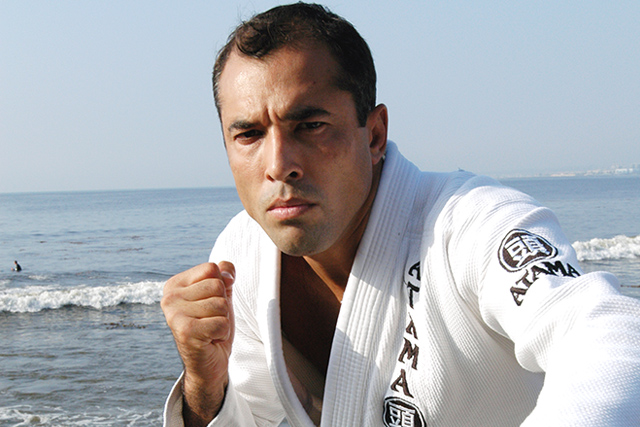Disability memoir- Royce Gracie headlines fundraiser benefiting individuals with disabilities- Part 1 of 2
Royce Gracie headlines fundraiser benefiting individuals with disabilities. PART 1 OF 2
For many years people have debated which fighting style is superior. Boxers argued they would knock out wrestlers. Wrestlers claimed they’d defeat boxers, after bringing the fight to the ground. Karate practitioners, kickboxers, tae kwon do, judo, and other martial artists have also made claims to their style of fighting being the best. Sumo wrestlers have also thrown their hats in the ring, stating their sheer size would make opponents succumb to defeat. Even bar room brawlers believed their raw toughness would make them victorious against any of the above fighting styles.
The score was finally settled in November of 1993 in Denver, Colorado by a tall, skinny, twenty-six-year-old Brazilian from Rio de Janeiro named Royce (pronounced Hoyce) Gracie. The proving ground was the first Ultimate Fighting Championship (UFC) where Royce displayed his family’s brand of jiu jitsu (grappling mixed with submission holds), that the Gracies had been perfecting for decades, to the world. It’s a method by which a much smaller person can defeat a larger opponent by using leverage and technique over size and strength.
In that one night, one-hundred-seventy-eight-pound Royce defeated three successive opponents, though he was outweighed in all his matches. One fighter even outweighed Royce by more than eighty pounds.
The pay-per-view audience was stunned. The world had never witnessed anything like it before, where a skinny guy easily defeated much larger and stronger opponents, and without throwing strikes to do so. It was incomprehensible to the viewers. Even the commentators who were sitting cageside were asking, “What just happened? How did Royce get that guy to give up in the fight?”
People around the world clamored to see more.
The following year UFC 2 was born. This time, Royce defeated four opponents in a single night, winning the tournament and again showcasing the superiority of Gracie Jiu Jitsu. (For perspective: Nowadays fighters compete two or three times maximum in a year.) Though Royce defeated two opponents in UFC 3, an injury and exhaustion prevented him from competing in the finals where he would have inevitably won his third straight UFC title. However, the following year at UFC 4, Royce again easily defeated three more fighters in a single night, eventually becoming crowned UFC 4 Champion.
The word was out: Gracie Jiu Jitsu was the fighting style to learn.
People from all over the globe suddenly began signing up for Gracie Jiu Jitsu classes—from laypersons wanting to get in shape to future combatants in the new sport of MMA to Hollywood actors participating in the latest fitness craze to worldwide police departments wanting to be able to control someone without having to draw their guns. People who’d previously thought their style of fighting was superior began adding Gracie Jiu Jitsu to their combat arsenal. Graduated college wrestlers with no options to continue competing began learning jiu jitsu. Boxing-based fighters began studying the art, realizing that 95 percent of all fights ended up on the ground. And troubled kids saw Gracie Jiu Jitsu as a way out much the same way other sports keep kids off the street. Many a pupil for many a reason lined up to learn the ‘gentle’ art from the Gracies.
Royce Gracie is to mixed martial arts and Brazilian Jiu Jitsu what Henry Ford is to the automotive industry. Though Ford didn’t invent the automobile, he brought it to the masses. Though Royce didn’t invent jiu jitsu, over the years he spread the gospel of Gracie Jiu Jitsu around the world through his family’s teachings at their many international academies.
Royce has been dubbed the Godfather of MMA and his family has been officially crowned the God-family of Brazilian Jiu Jitsu. Many MMA fighters say they became fighters after they saw Royce Gracie compete in the first UFC’s.
Royce has fought all over the world. When he competed in Japan, Royce was the biggest draw, competing before a crowd of one-hundred-thousand spectators. Even Muhammad Ali or Mike Tyson never fought in front of crowds that size.
For the above reasons, I wanted Royce Gracie to headline my second fundraiser benefiting individuals with disabilities. The question was: Could I get the legend to do it?
To read more stories about UFC legend Royce Gracie and other UFC champions headlining charity events I created and organized benefiting individuals with disabilities, visit www.specialstoriesbook.com.

